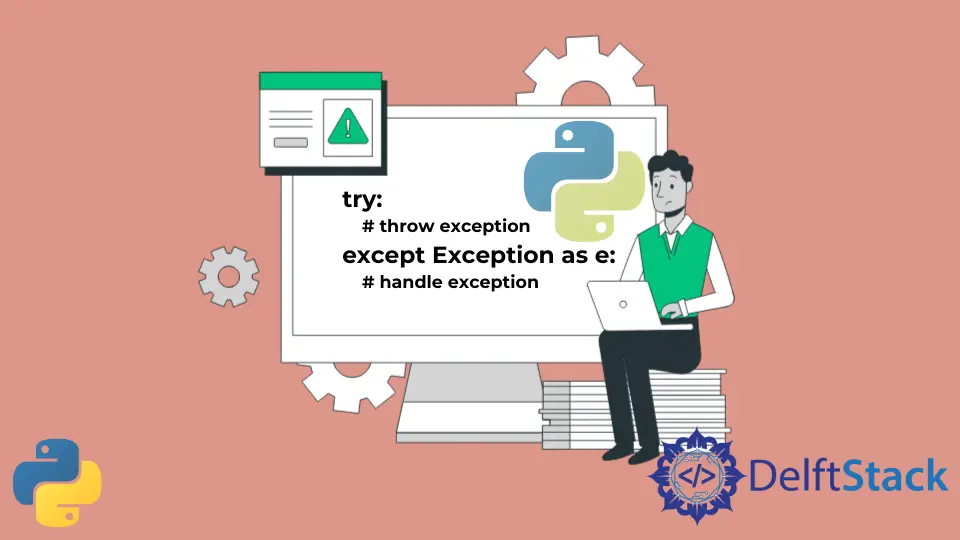Python 中的 except Exception as e

我们可以将异常定义为一个事件,该事件在引发时可以改变程序的流程。异常主要是任何给定程序在逻辑上正确的结果,同时仍然在代码执行时出现错误。但是,在大多数情况下,此错误不会改变程序的执行。它会更改或更改程序的默认流程和功能。
我们可以使用 try...except 块来处理 Python 异常。
本教程演示了 Python 中 except 语句和 except Exception as e 语句之间的区别。
在 Python 中,这两个语句都用于实现异常处理。但是,这两个语句之间确实存在显着差异,而不仅仅是语法。
简单的 except 语句用于一般情况,它排除所有异常。相反,except Exception as e 语句是定义 except 语句的参数的语句。
后一个语句中的 e 用于在代码中创建给定 Exception 的实例,并使用户可以访问给定 Exception 对象的所有属性。
虽然 except Exception as e 语句更深入,但它并不能捕获诸如 BaseException 之类的异常或诸如 KeyboardInterrupt、SystemExit 和 GeneratorExit 之类的一些系统退出异常。但是,一个简单的 except 语句可以完成此任务并捕获所有这些异常。
简单的 except 语句的语法是:
try:
# write code that may throw exception
except:
# the code for handling the exception
而 except Exception as e 语句的语法是:
try:
# write code that may throw exception
except Exception as e:
# the code for handling the exception
Vaibhhav is an IT professional who has a strong-hold in Python programming and various projects under his belt. He has an eagerness to discover new things and is a quick learner.
LinkedIn